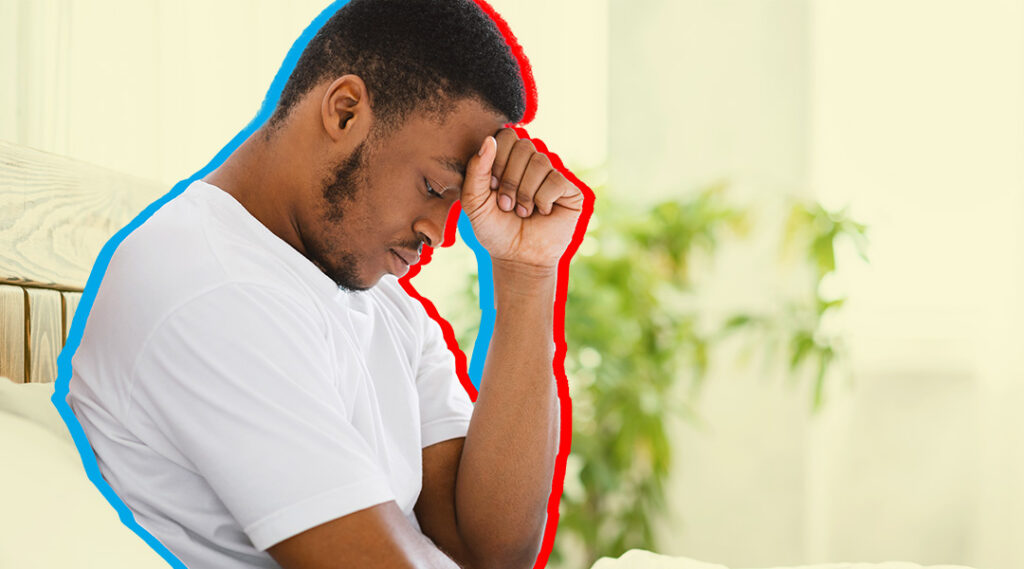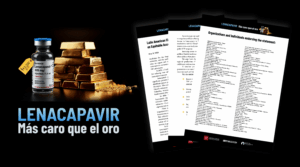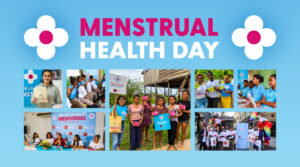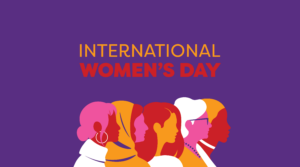According to sociology, stigma is a condition or trait that is attributed to a person and that causes society to classify them in a group of which they have a negative opinion. Unfortunately, the stigma that still persists around HIV leads to the idea that those living with the virus “asked for it” by engaging in some behavior outside the norm.
Since the start of the pandemic in the 1980s, people with HIV have been stigmatized for being gay or bisexual men, commercial sex workers, or people who inject drugs, so much of the response to this pandemic has focused on in eliminating negative ideas that justify the exclusion of these groups, for example, from health services.
But have you ever wondered, what happens when that social stigma is so repetitive and resonates so strongly that the person with HIV takes it as true? So we are talking about an internalized stigma, that is, a stigma that the person has made their own and that generates self-rejection.
A complex matter
Internalized stigma consists of the acceptance that someone makes of the negative characteristics that are attributed to the group to which they belong, as explained by the Infosida portal. In this way, the person internalizes and accepts as valid the negative actions they receive from society.
This acceptance can bring feelings of guilt, self-loathing, isolation, rejection, or hopelessness. This probably has to do with issues linked to HIV transmission (sexual relations “outside of marriage”, sex work, drug use), which have an important moral charge. In this sense, it is less frequent, for example, for someone who develops lung cancer to feel guilty for having smoked throughout their lives, since tobacco use is still associated with positive aspects, such as social gatherings, adult life or even sophistication.
Some people with HIV may feel guilty for not having used a condom in their sexual life, or may feel that they are a “threat” to their intimate partner. Thus, internalized stigma implies a high cost in terms of not only emotional, but also physical well-being, of those who experience it.
As Infosida mentions, internal stigma is related to lower self-esteem, a lower perception of social support, poorer adherence to treatment, and increased anxiety, stress, and depression.
That big secret
Concealment of HIV status and internalized stigma form a vicious circle. The strong social condemnation of certain behaviors (such as sex between men) makes some people keep their HIV diagnosis a secret, and that same secret makes them feel that they are guilty of something “bad” for which they deserve the treatment they receive or that they even simply imagine that they could receive.
It’s normal to be afraid of sharing your diagnosis with one or more people, but hiding it is only a temporary solution. In the long run, the feeling of having a big secret will generate a significant degree of stress due to the fear of being discovered, which will affect your emotional health. Also, not saying it deprives you of opportunities to receive social support, such as joining a mutual support group with other people living with HIV.
And beyond the individual repercussions, internalizing the stigma of living with HIV contributes to perpetuating the problem. Those who have decided to speak openly about their diagnosis do so, to a large extent, to move other people to accept who has this health condition, and they usually succeed. Facing the fear of possible stigma has beneficial effects both on that person and on their social group.
Take care of your mental health
If you are living with HIV and think you are dealing with internalized stigma, seek professional help with a therapist or a psychiatrist, specialists who can help you unravel those ideas that take away your peace of mind.
In the HIV medical services, they can refer you to someone on the team who can attend to your mental health. But if internal stigma has prevented you from even reaching out for care, now is the time to start. Remember that at AHF Latin America and the Caribbean we can help you start or resume your treatment, just come to our offices or make an appointment via WhatsApp, we are in 11 countries in the region.







